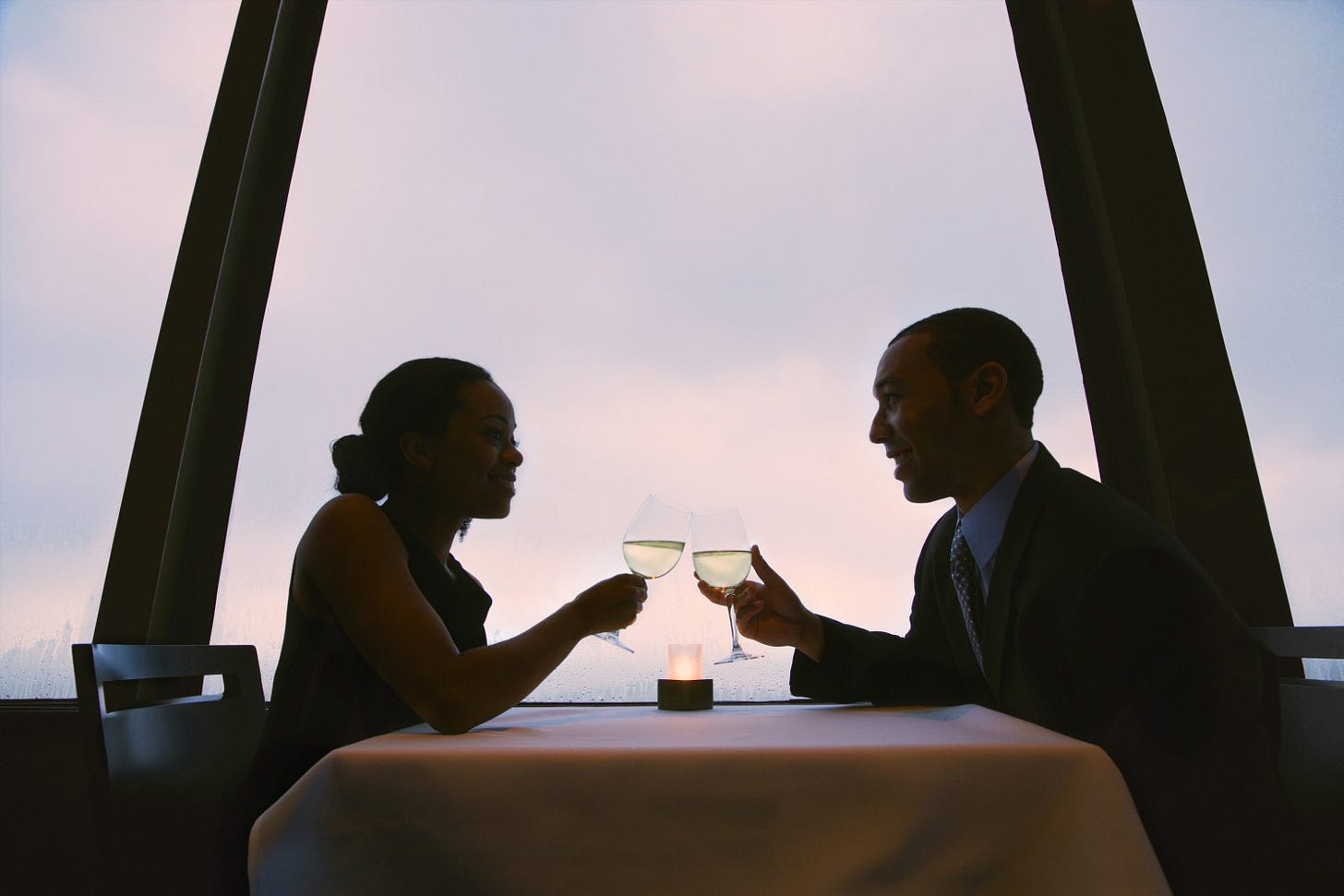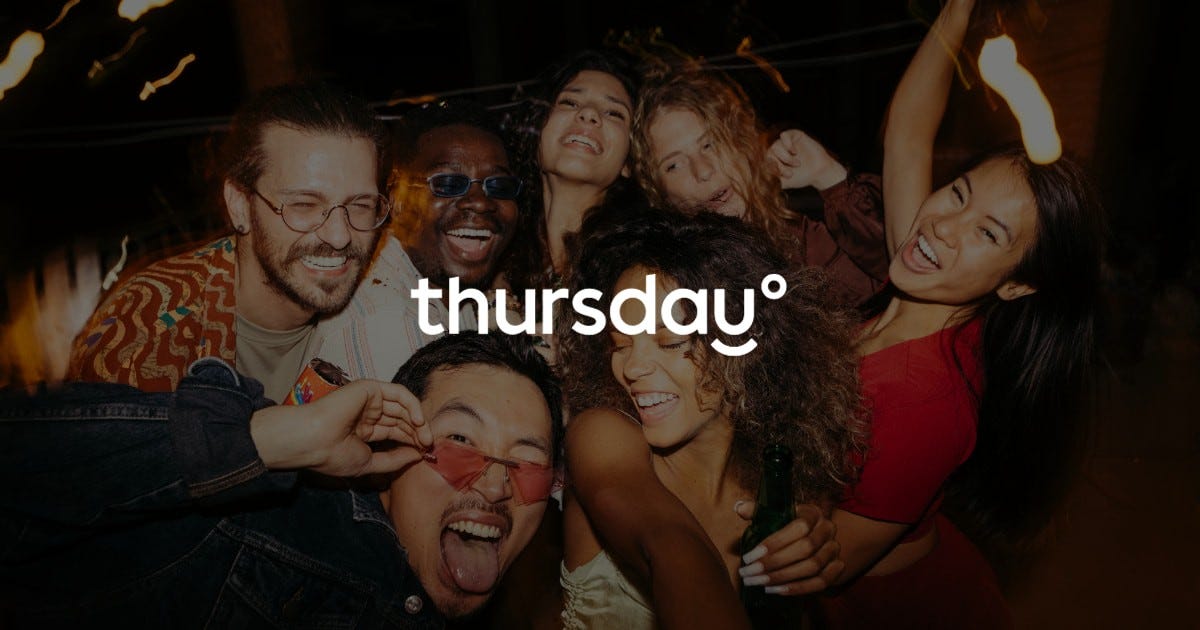I don’t have to be the one to tell you that Bumble’s recent campaign was a bit of a misstep. There have been countless amazing articles untangling the web of problems behind it (HERE HERE AND HERE). Across social media, some have heralded it as the straw that breaks the dating app camel’s back. I’d like to argue that Bumble’s recent campaign blunder doesn’t signal the end of dating apps but rather marks a significant shift in how they must evolve to survive. In an era where loneliness pervades and dating has never felt so exhausting and vulnerable (or algorithmically driven), dating apps face a challenge: adapt or die.
The word ‘dating’ has always been a pretty loaded, confusing, and ultimately vulnerable idea. But now, it conjures up images of sliding into DMs, ghosting and the ever-exhausting yet still addictive dating app world… it’s relentless. While Bumble’s tone was off, they were right that women are exhausted by dating apps. An endless carousel of gamified algorithms and vulnerably putting oneself up for judgement. It all feels a bit bleak.
Dating apps have de-risked and automated life, thus turning intimacy into a flat, streamlined, commercialised process held up by gamified algorithms that eliminate error. Our social muscles, built upon risk and connection, are atrophying, and relationships are suffering. As the BURNAFTERREADING Substack eloquently puts it,
“That’s not the only way algorithms are warping our understanding of love. The Era of Therapisation has us in a chokehold, feeding us a constant stream of content that helps us psychoanalyse and categorise.”
This world of online therapy-speak emerged as a solution to the toxicity of modern dating, but I’d argue it’s gone further into making us risk-averse. Again, that’s not to say these conversations aren’t important - they are! Red flags are real. But the proliferation of ‘green flag, tick!’ or ‘icks’, saying someone is love-bombing when they want a second date, and overall reliance on cautious measures of therapy-speak have made us lonelier than ever.
I’m not here to tout that dating online is a complete, technocratic nightmare, because that would be ridiculous. Plenty of happy, lifelong (or short flings! No shame) relationships have started from these apps. And people are looking for similar things. Data shows that a significant majority of both women (84%) and men (78%) seek equal partnerships and traditional romance. Women (59%) and men (38%) find chivalrous gestures like ensuring a date gets home safely to be important, and a substantial number prefer putting phones away during dates to foster genuine interaction. This suggests a desire for more meaningful connections that current dating apps are not adequately providing. It’s not a modern problem of romance, it’s how entrenched in algorithms it has become.
What was more interesting than the Bumble Fumble was the founder’s exploration of a dating concierge. Whitney Wolfe Herd has suggested that online daters could have ‘AI concierges’ that ‘date’ each other to find the best possible matches. Because that’s exactly what will solve this crisis: more algorithms. The gamification of dating ostracises certain groups and fuels disillusionment with the dating process. Bumble’s mishap, while widely criticised, brings to light the deeper issue of how love has been commodified and reduced to a swipe. This gamification not only exhausts users but also fails to deliver on the genuine connections that these platforms promise.
This won’t save the apps. It won’t cater to our desire to get offline and meet a person IRL. It won’t solve a crisis of nostalgia; a yearning to meet people ‘the old fashioned way.’ And it certainly won’t solve a crisis of dating exhaustion, which is what started this whole fumble in the first place. Exhaustion isn’t solved through more algorithms, it’s about instilling the (healthy) risk and playfulness back into dating, and taking it away from a place of overused prompts, constant swiping, and overall gamification of love.
Women (84%) and men (78%) seek equal partnerships and traditional romance. Women (59%) and men (38%) find chivalrous gestures like ensuring a date gets home safely to be important.
Cultural theorist Agus Panzoni argues there is no algorithm for love. The reliance on algorithms to filter potential partners may inadvertently close off opportunities for successful matches. Instead of boiling dating down to a science, dating apps should focus on fostering real-life connections. Freya India, another cultural critic, discusses how these platforms have made us risk-averse. While caution is justified, excessive risk-aversion can hinder authentic connections and experiences.
So what comes next? Other apps are adapting more successfully. Tinder, while not excused from a long history of gamifying swiping and entrenching hook-up culture in a digital space (often without safety guardrails), created a recent campaign more fixated on overcoming the atrophying muscles of being connection-averse and encouraging people to take the first step with someone. Hinge (the same applies) is prioritising IRL experiences, investing money in getting people off the apps and meeting IRL (and partnering with Thursday to do so). Beyond apps, single-exclusive social clubs have been popping up, such as Ambyr in NYC. Or, as we wrote about before, will it instead signal a return to interest-based hobbies and groups? Can these communities help put some of the healthy risk back into dating, and crumble the gamified algorithms that taunt and exhaust us? Speed dating, supper clubs, and all of this is not necessarily solely romantic love, it encompasses love in all forms. Loneliness can be cured not just through romance but also through connection, and perhaps that has to come first for love to truly work (or at least, to kick the nasty habit ;) ).




